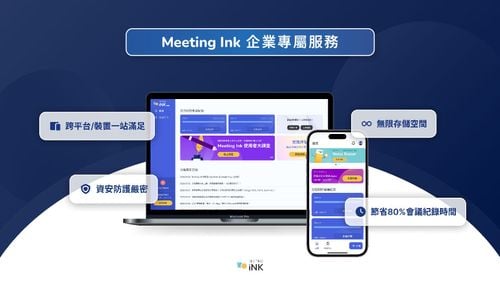【2020 Solutions】 Lightweight AI Readiness, Assisting Enterprises in Easy Digital Transformation
In the era of AI, whether it's smart manufacturing or smart retail industry applications, the most important first step is data collection, especially on factory machines where thousands of information streams exist. It's crucial to define what information is useful and what constitutes useless digital junk from the onset. If there is simple, lightweight, and low-cost software, it could help enterprises collect data from machines and analyze and predict to achieve traditional enterprises' digital transformation goals.
AI Commercialization Insufficient, Main Consideration for Enterprises is Cost-Benefit
Located in Xindian, New Taipei City, the headquarters of Beier Electronics Asia Pacific is a technology company committed to industrial automation and high-standard data communication. Its main products include Industrial IoT Gateways (devices linking two different network systems, transmitting data to other networks with similar functionalities but different structures), War Room Visualization software, HMI, with core technologies being controller communication drivers and visualization software.
Lee Li-Wei, the deputy director of product management and support at Beier Electronics, who has worked at Advantech and Xinchang Company, and familiar with Industry 4.0 operations, stated that when assessing whether to introduce AI, the most important consideration is cost and benefit. From his observations over the years, the level of AI commercialization is still very insufficient because AI is often customized, not mass-reproducible, hence naturally expensive. Only if AI moves to vertical applications and standardizes products, like using AOI for defect inspection or predictive diagnostics for motors or tools, can such AI possibly be commercialized and cost-effective.

▲X2 pro提供各種高性能工業用人機介面
At this stage, digital transformation challenges faced by factories include: 1. Data collection difficulties; 2. Factory equipment needing updates, which consumes time; 3. High costs. For large enterprises, sufficient funds and human resources allow them to introduce AI and undergo digital transformation projects. As for SMEs, limited by resources, the key factor is cost-benefit, determining whether to introduce AI. Existing software that assists in data collection and provides decision-making visualization software may meet current practical needs. Once business owners see tangible benefits, they can further consider the need and incentives for adopting AI.
As a professional manufacturer of human-machine interfaces in Europe and America, Beier Electronics provides visualization software that fetches controller data on production lines and machine tools, as well as IT data integration services. Using AI technology optimized for productivity and quality management can solve data fetching and integration issues.
For example, the factory war room displays the day's factory data and even real-time financial reports on a large screen wall. Factory decision-makers can then use the integrated information and war analysis converted by visualization software to make decisions about production, marketing, inventory management, and procurement preparations.
Three major advantages of the war room: low cost, easy maintenance, and mass reproducibility
Compared to a typical factory war room, Beier Electronics' war room service has three major advantages: it offers a low-cost, packaged visualization software; it doesn't depend on engineers for maintenance; and the war room can be easily commercialized and mass produced, which also accommodates future expansions from automation to IoT devices.
Lee further explains that AI primarily retrieves data for assessment, unlike automation, which demands real-time reaction. It can tolerate a slower data fetching speed, still within milliseconds. Human-machine communication doesn't need a special interface, so it can be decoupled from existing controllers without program changes, directly interfacing with existing hardware on the production line to fetch data, using existing software for data reading and analysis, aiding in decision management, and carrying out factory digitization upgrades.
As for whether Beier Electronics will introduce AI algorithm technology to provide users not only with data collection but also analysis and prediction services? Lee stated that Beier Electronics considers three aspects. Firstly, data collection is absolutely crucial when introducing AI. At the same time, it must be done without increasing costs or changing site equipment for high customer acceptance. Secondly, what problems AI aims to solve must be clearly defined.
Beier Electronics' clientele includes PLC (programmable logic controller) vendors, including Delta Electronics, Yonghong, Alliance Automation, Shilin Electric, and international giants such as Siemens, Rock weld, and MITSUBISHI. However, the ultimate customers are PLC users, covering industries beyond semiconductors, including petrochemicals, 3C manufacturing, automotive manufacturing, power generation, and risk control. The domain knowledge covered is extensive. Given limited resources, whether to extend services to AI is still under consideration. However, if professional specialization can be implemented, Beier Electronics plans to arrange an industrial ecosystem, introducing strategic partners to assist customers toward AIoT goals.

Deputy Director Lee Li-Wei, Product Management and Support Department at Beier Electronics
「Translated content is generated by ChatGPT and is for reference only. Translation date:2024-05-19」


